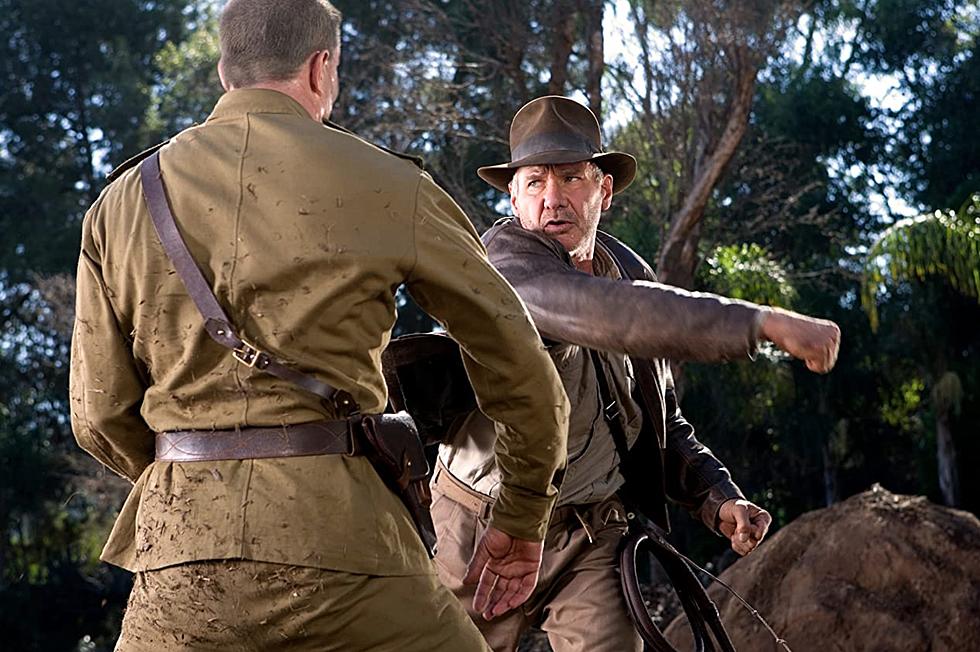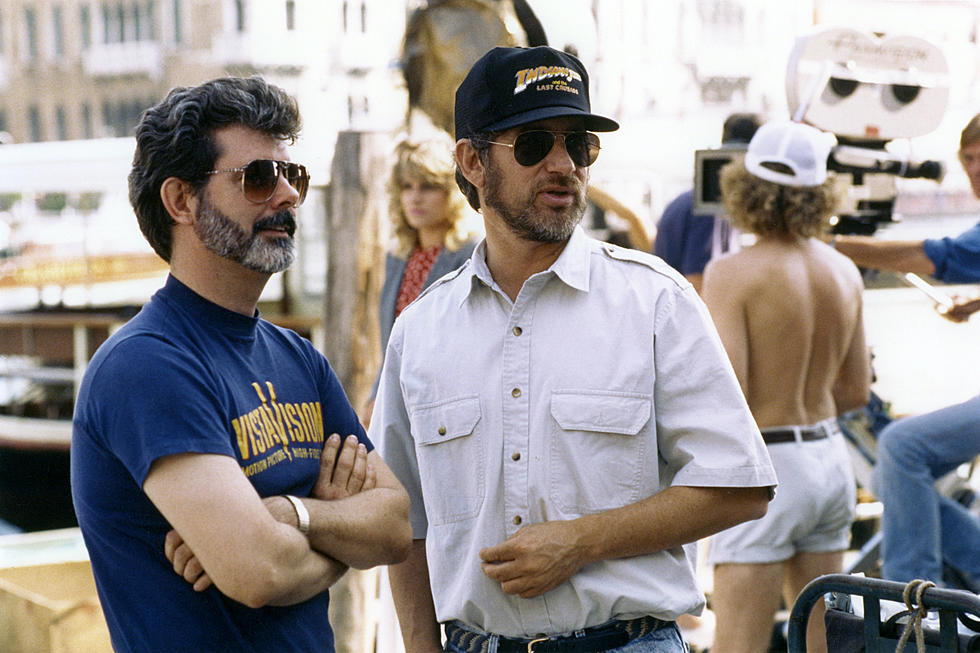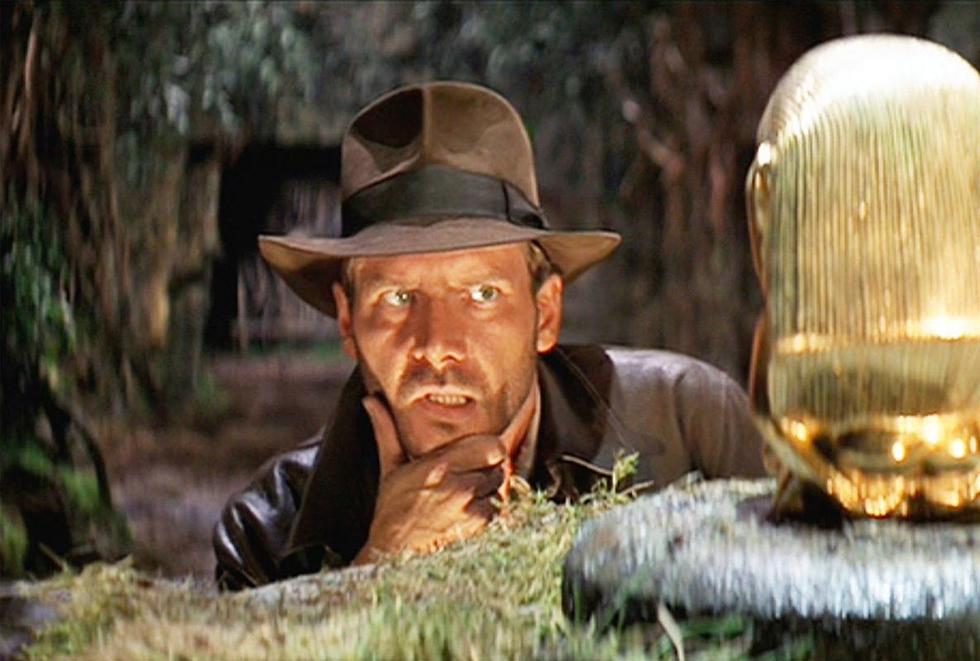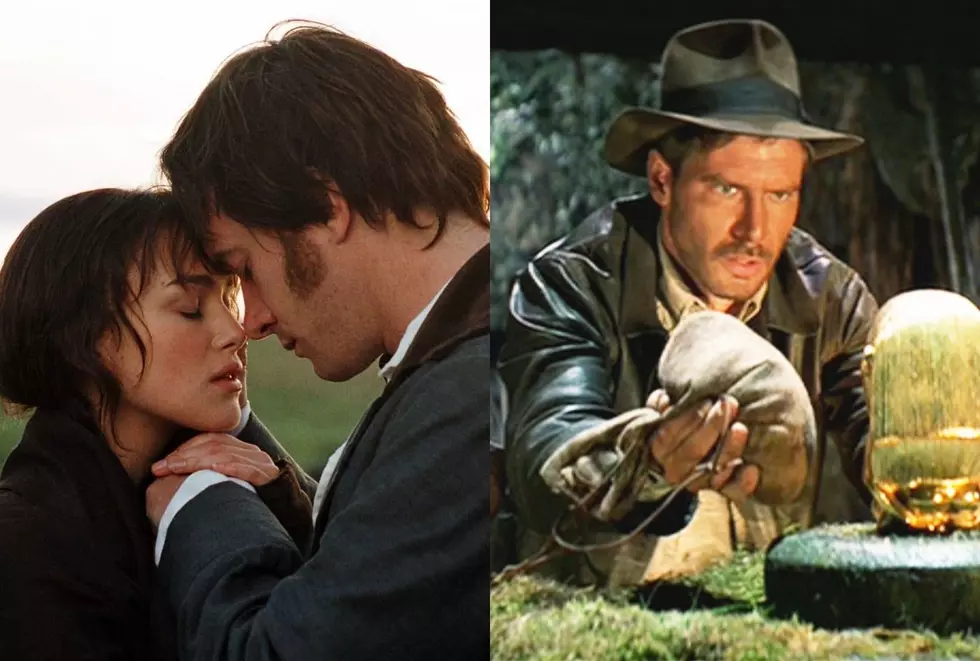
‘The Fabelmans’ Makes Bad Spielberg Movies More Interesting
A lot was made of the very last moment in Indiana Jones and the Kingdom of the Crystal Skull, where Indy’s long-lost son, Mutt Williams, picks up his father’s hat and nearly tries it on. Just as Mutt is about to place the hat on his head, his dad snatches it and walks away with a wry grin on his face. The implication: While the film had seemingly groomed Shia LaBeouf’s Mutt as a potential inheritor of the Indiana Jones franchise, Harrison Ford had no intention of retiring. (Sure enough, 15 years later we’re going to get a fifth film, Indiana Jones and the Dial of Destiny, starring Ford in the title role.)
Almost no one noticed the moment right before that bit of business with Mutt and Indy’s hat. The penultimate moment in Kingdom of the Crystal Skull follows Mutt at his parents’ wedding. While Indiana and Marion Ravenwood (Karen Allen) kiss, Mutt walks through the church, finds a camera, and begins to document the happy occasion.
This simple act — Mutt filming Indy and Marion’s wedding — did not stand out when Kingdom of the Crystal Skull was first released in 2008. But it takes on new meaning when viewed in conjunction with director Steven Spielberg’s latest movie, The Fabelmans, a deeply autobiographical tale about Spielberg’s own childhood and the evolution of his relationship with his parents. Time and again in The Fabelmans, Spielberg casts his stand-in, Sammy Fabelman (played by Gabriel LaBelle), as his family’s official historian. In family meetings or on vacations, Sammy is often seen standing apart from his parents and three siblings — typically while holding a camera.
The Fabelmans does not necessarily make Indiana Jones and the Kingdom of a Crystal Skull a more entertaining movie. It can’t improve the quality of the CGI in the big jungle chase scene, or make the ... whatever exactly happens in the ancient ruins of Akator any more clear or satisfying. But it does make the film more interesting, by adding new context and meaning to its characters and relationships, which are revealed to be a lot more personal than they appeared 15 years ago.
Certainly, the father issues in the film were obvious from the start, as they are in many of Spielberg’s movies throughout his long career. Following the dissolution of his parents’ marriage, Spielberg was estranged for his father for a period of about 15 years, and his early work often focused on absentee fathers (Close Encounters of the Third Kind), broken families (E.T.: The Extra-Terrestrial), orphans (Empire of the Sun), or some combination of all three. The third Indiana Jones film, Indiana Jones and the Last Crusade, introduced Indy’s own father, played by Sean Connery, as an aloof, somewhat cold, and work-obsessed disciplinarian — essentially a handsome Scottish clone of Sammy Fabelman’s father Burt (played by Paul Dano).
Kingdom of the Crystal Skull flips that dynamic on its head by casting the 64-year-old Ford as the elder figure in the relationship with his new sidekick, Mutt Williams. As Indy and Mutt get to know one another while traveling through South America, Mutt reveals that he has dropped out of one prep school after another because he has very little interest in academics and wants to pursue his real dream of fixing motorcycles. At that point in the story, Indy encourages Mutt to follow his reams. Later, when Indy discovers Mutt is actually his son, he reverses course, and demands Mutt return to school after their quest is over.
This family squabble is one of the stronger moments in Kingdom of the Crystal Skull, but it resonates even more deeply after The Fabelmans, which makes it clear that these tensions played out repeatedly in the Fabelman (or Spielberg) household. That film often shows the future director begging his father to let him quit school to pursue his Hollywood dreams, while his scholarly, practical, taskmaster of a dad insists he continue his studies.
This Crystal Skull sequence in the back of the Russian truck also reveals that after Indy left Marion, she married a man named Colin Williams. Supposedly, Colin was Indiana’s friend, and Indy was the one who introduced him to Marion. This strange three-way relationship sounds remarkably similar to the one in The Fabelmans between Burt and Sammy’s mother Mitzi (Michelle Williams), and Burt’s best friend Bennie (Seth Rogen). In The Fabelmans, after years of growing apart, Burt leaves Mitzi and she marries Bennie.
The parallels don’t stop there. Later, after Indy and Mutt manage to escape the collapsing ruins of the lost city of Akator, Indy quips "Why don’t you stick around, Junior?” to which Mutt replies “I don’t know; why didn’t you, Dad?” Even as they grow closer, Indy doesn’t really understand his greaser son Mutt, in much the same way Burt loves Sammy but finds himself incapable of communicating with him because of their divergent interests.
The Fabelmans suggests that Spielberg’s success as a director (once his father relented about staying in college) was due to ability to blend his father’s work ethic and mechanical dexterity with his mother’s imagination and adventurous spirit. Without his mom’s influence, Spielberg’s movies would be cold and dry. Without his father’s gifts, he wouldn’t possess the technical know-how to bring his whimsical ideas to life. He’s the child of both his parents.
Indiana Jones is a similar synthesis of Spielberg’s mother and father. His life is neatly split in half; he spends part of his time as a tweedy professor of archaeology at Marshall College — the picture of a bookish intellectual like Spielberg’s dad. (Dano‘s costume in The Fabelmans’ first scene, shown above, looks exactly like something Indy would wear to his office hours at Marshall College.) When duty calls, Indy dashes off around the world in search of treasure and adventures, channeling Spielberg’s mother’s devil-may-care attitude when she scoops up her kids, piles them into the family car, and chases after a tornado that touches down near their house in suburban New Jersey. Indiana Jones can give a history lesson about the life of a Spanish conquistador and fend off an attack by warriors protecting an ancient graveyard in the span of a single scene. Indy may have been original created by George Lucas, but Spielberg made him a combination of his mom and dad’s dissonant abilities.
In Kingdom of the Crystal Skull, Indy and Marion’s reunite after 20 years of separation. While Spielberg’s parents never got remarried, they did remain friends and grew closer in their final years; the 2017 documentary Spielberg shows them spending time together, and even holding hands. (At one point, Arnold Spielberg confesses he still loves his ex-wife.) Indiana Jones and the Kingdom of the Crystal Skull’s wedding scene plays like a fantasy version of that reconciliation — with another Spielberg stand-in filming it all from a front-row seat.
The Fabelmans is a work of fiction. But in interviews, Spielberg insists that many of its scenes play exactly as he remembers them happening. I have a feeling that the film will come to be seen as a kind of Rosetta Stone for the subtextual ideas in many Steven Spielberg movies. If it brings this much additional depth to Kingdom of the Crystal Skull, how will it enhance his masterpieces?
Kingdom of the Crystal Skull may still be the worst Indiana Jones movie, but it’s a far more personal effort from Spielberg than most audiences noticed in 2008. The fact that its escapist portions are less compelling than its character interplay were probably a clue that Spielberg was nearly ready to make The Fabelmans and tackle these ideas head-on, rather than obfuscate them yet again in the guise of a frivolous blockbuster. In hindsight, it is not at all surprising that he decided to pass on directing Indiana Jones and the Dial of Destiny — and make The Fabelmans instead.
Every Steven Spielberg Movie, Ranked

More From 103.7 The Loon










